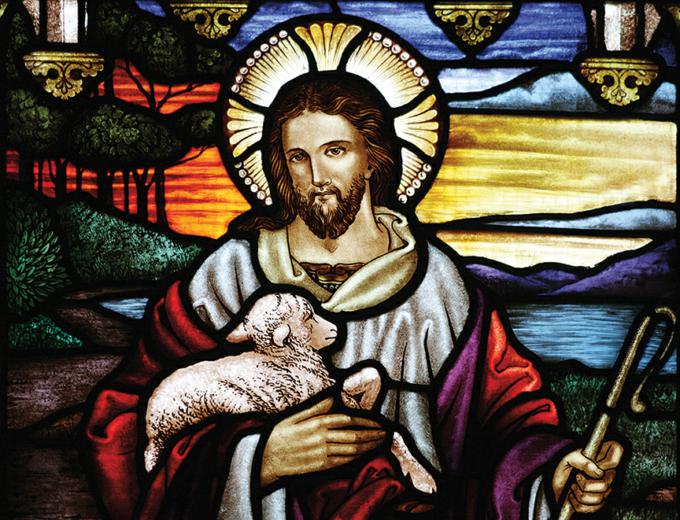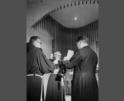
Culture
Each day at the Catholic Schools Foundation (CSF), we witness amazing shepherds in the form of teachers, counselors, and other school leaders and staff who meet students where they are in life's journey.

Reardon
The Parable of the Good Shepherd is a wonderful visualization of God's love for us. Jesus tells us how a hired man, whose sheep are not his, "works for pay and no concern for the sheep" (John 10:13), unlike the good shepherd, who knows his sheep and, because of this, will lay down his life for the sheep. This is a reassuring vision: a God who knows us, sees us as we are, and loves and guides us along our path.
As sinners, we make mistakes; we turn away from God; we do things we should not do. This parable is a reminder that God will never abandon us, even when we wander; he knows our hearts and will always walk with us. It also challenges us to meet people where they are, not judge them, but instead walk with them. This does not mean we agree or condone things that are not good, but rather, as the late Justice Antonin Scalia remarked when questioned about his close friendship with the late Justice Ruth Bader Ginsburg, " I attack ideas. I don't attack people. Some very good people have some very bad ideas."
Justice Scalia was able to separate the idea from the person. This is not always easy to do, and sometimes we can be more like the Pharisees who, when they saw Jesus gathered with tax collectors and sinners, muttered, "This man welcomes sinners and eats with them" (Luke 15:2). The Pharisees looked down at people they believed to be beneath them. Jesus did not lecture the tax collectors and sinners. Instead, he met them where they were and shared stories to help them engage and find the truth.
Each day at the Catholic Schools Foundation (CSF), we witness amazing shepherds in the form of teachers, counselors, and other school leaders and staff who meet students where they are in life's journey. We know of students who face abuse, housing and food insecurity, loss of faith and other serious challenges, who are met every day with love and support. Students struggling with questions of who they are, their relationship to God and even their own belief in God see teachers and staff who are living examples of the good shepherd. Their actions are a living reflection of the Gospel. Meeting students, being with them and, as Rick Henken, 2024 CSF Carolyn and Peter Lynch Award recipient, pointed out during his remarks at the 34th annual CSF gala, "When you enter one of our schools, you can't help but feel the love, the kindness, and the compassion that permeates."
For over two centuries, Catholic schools have been a force for good in the church and in communities throughout the Archdiocese of Boston. In years past, new immigrants from Ireland and Italy received the tools and opportunity to emerge from tenement living and become moral leaders of business, commerce, and government. The new immigrants today look different, but their stories are no different than those of the Italians and Irish before them, and Catholic schools continue to give opportunities to the less fortunate among us.
As we draw reassurance from the Gospel message of the Good Shepherd, let us also challenge ourselves to see the example of the good shepherd who knows his sheep, finds them where they are, and brings them back into the fold.
- Michael B. Reardon is executive director of the Catholic Schools Foundation, www.CSFBoston.org.
Recent articles in the Culture & Events section
-
Building a legacyMichael Reardon
-
Scripture Reflection for Nov. 24, 2024, Solemnity of Our Lord Jesus Christ, King of the UniverseDeacon Greg Kandra
-
Seeds of graceMolly M. Wade
-
The dedication of St. Francis Chapel in the Prudential CenterThomas Lester
-
Honeybees are taking over for canariesDeacon Timothy Donohue


















